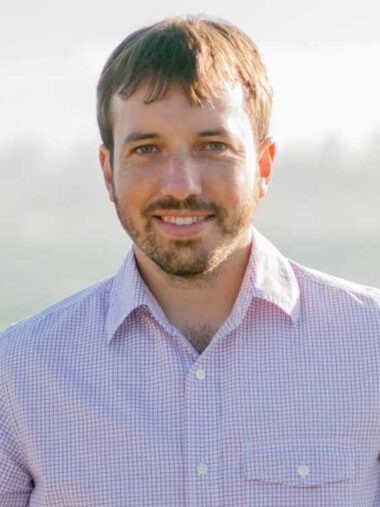
Chris Lambert
- Khoury Alumni
- BS in Computer Science ’06
When deciding where to go for college in the early 2000s, former Lyft CTO Chris Lambert chose Northeastern University in part off the strength of the co-op program. “I found it valuable as a way to accelerate and enhance my experience.” He majored in computer science, and, he says, “got exposure to a broad set of areas within CS.” Lambert’s first two co-ops were with Intel, and his final co-op and first engineering position was with Google. A variety of classes set him up to hit the ground running, but he mentions his informational retrieval class with Javed Aslam and software development with Matthias Felleisen as particularly important.
A directed study with Aslam was important to his first job at Google as part of the natural language processing team in building a system that could translate between a hundred different languages. “The concepts and algorithms that I learned in the information retrieval class set me up to be comfortable in that research group.” In the directed study, Lambert was excited to work with Aslam as a mentor to apply the knowledge from his class to solving a specific problem domain: building a search engine for programming languages that was higher quality and more useful than a general search engine. “[Aslam] would give me suggestions and helped me approach problems the right way, but I had flexibility in the content and direction of the work.”
Looking back on his work in Felleisen’s class, Lambert remembers it as “very pragmatic in building software systems and teams for large scale development.” This proved useful in his second team at Google – the mobile group. “It was 2007, pre-iPhone. It wasn’t yet a priority for Google – we had one team doing mobile projects for the whole company, which was over ten thousand people.” Lambert’s focus was on location services and mapping technology. “I got exposure to large scale distributed systems, machine learning, mobile development, location services. It all ended up being a great background for what I did at Lyft.”
Lyft launched in May 2012, and Lambert joined in November 2012 as a software engineer. The engineering team was eight people in a thirty-person company. “We still had the pink mustaches on the cars, with maybe a hundred drivers on the road. It was an exciting, fun chaos. Every Friday night was our biggest night ever. When you’re growing that quickly, you’re always hitting the scaling limits of what you’ve built, and it’s all-hands-on-deck to fix it – a classic startup experience.”
He soon shifted into a CTO role. “Lyft was my first time as a people manager. I learned a lot of great lessons about building teams and taking care of people, putting people first.” Although the pandemic was “the hardest years” for the company, Lambert takes pride in weathering the storm and rallying employees to bounce back. On the business side, a proud moment for him was when Lyft launched twenty-four cities in twenty-four hours in 2014. “We enlisted our community of drivers to help onboard new drivers. It was a big milestone for us.” On the product side, he mentions the shared rides feature. “We were the first company to do that. We’ve expanded to be a portfolio transportation company, integrating a variety of transit methods into the app.”
We still had the pink mustaches on the cars, with maybe a hundred drivers on the road. It was an exciting, fun chaos. Every Friday night was our biggest night ever. When you’re growing that quickly, you’re always hitting the scaling limits of what you’ve built, and it’s all-hands-on-deck to fix it – a classic startup experience
Before going into the next phase in his career, Lambert plans to take a few months off and travel with his family. But following that, he’ll figure out what’s next. “Probably something early stage. That’s where I have the most fun, I’d love to that again.” In terms of areas, he’s particularly interested in large language models and the new AI revolution. “It will change more industries than you can believe.”
Reacting to his selection as a 40 for 40 recipient, Lambert feels deep gratitude. “I look back at my time at Northeastern fondly. To be remembered by the faculty and staff is an honor. I’m thrilled and excited to reconnect with the community.” He believes Khoury College and Northeastern’s futures are bright. “In the last few years there’s been a nationwide shift where more students have been more interested in CS majors, but Northeastern has been investing for 40 years. With the amount of time and attention given to CS, it’s not just that Northeastern is investing today, it’s the last 40 years and has only gotten stronger since then. Whenever I return to campus, seeing the West Village building is a visible sign of that investment. We have an amazing faculty that is paying dividends in so many ways.”